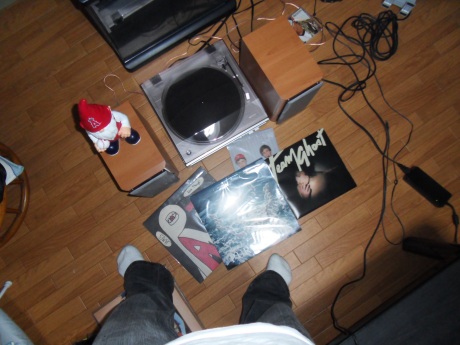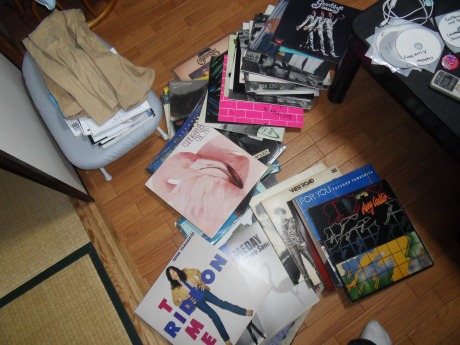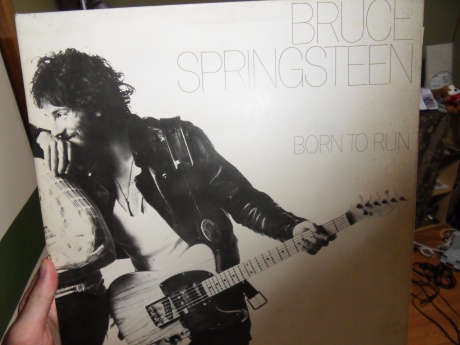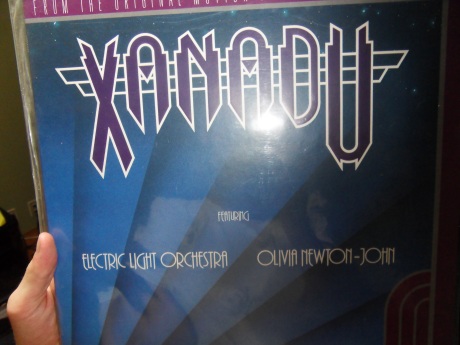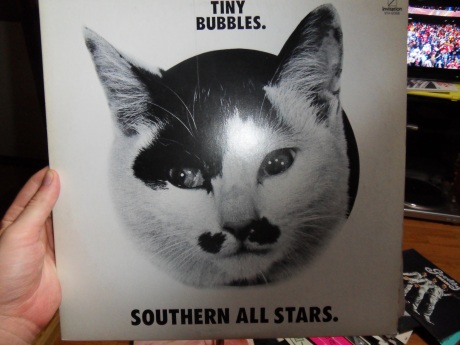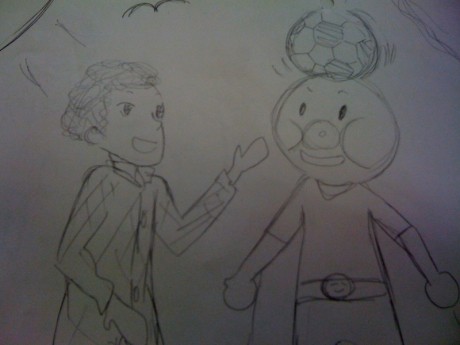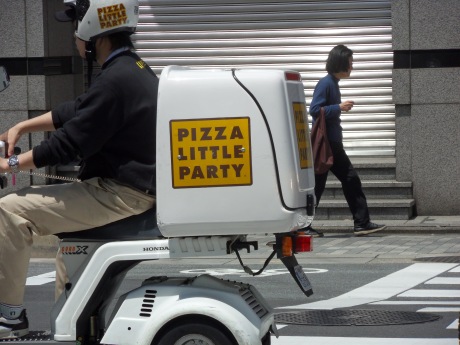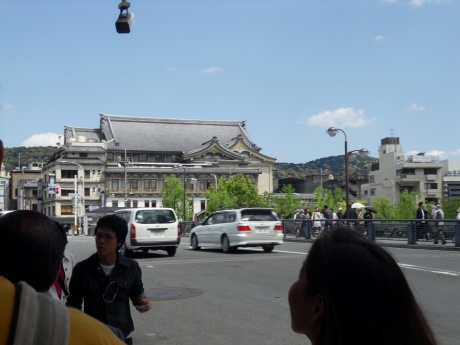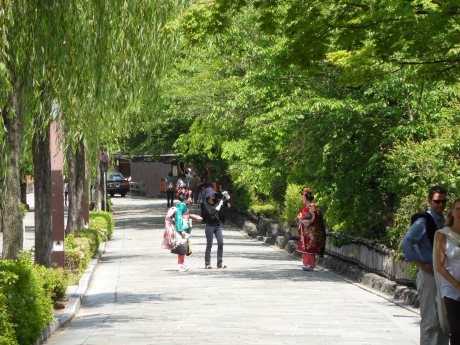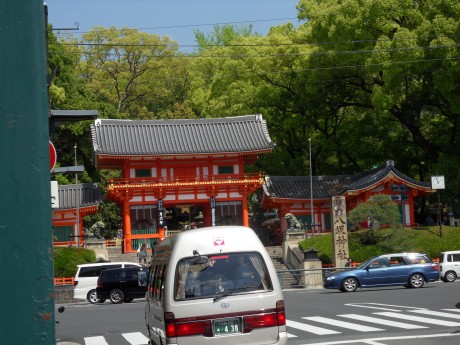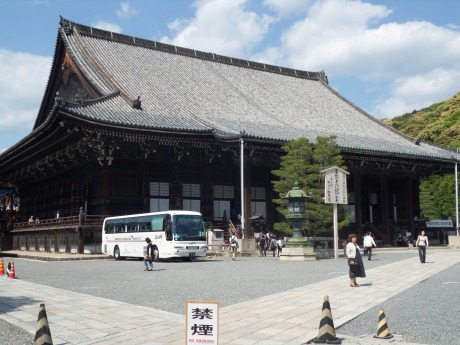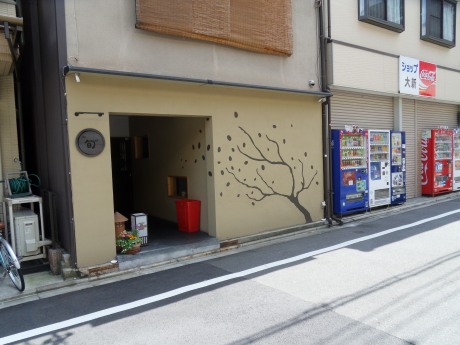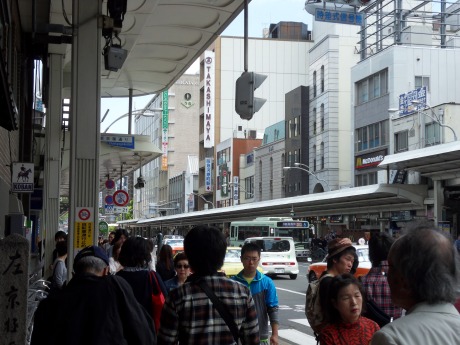The Japanese Today And English Teaching Today
June 28, 2010
I recently read The Japanese Today, a misleadingly titled book by Edwin O. Reischauer and Marius B. Jansen about, well, the Japanese today. Except it was originally published in the late 80s, detailing a pre-recession Japan and thus missing a lot of cultural points prominent in Japanese society nowadays that arose following the bursting of the bubble economy (Jansen provides an updated look at Japan, but only up to 1994). The Japanese Today starts as an excellent condensed history of the country, before becoming a fawning look at once-contemporary Japan. Reischauer occasionally slips up during these chapters, not for lack of information because of his tendency to slip into old-man mode, bemoaning trends embraced by the young (in particular, he knocks cartoons and manga. He also tells some kids to get off his lawn). Despite these lapses, it’s an incredibly informative book that sheds a lot of light on the country’s history and political system. A very good read.
The chapter striking the biggest chord with me came late in the book. It focuses on language in Japan and besides reminding me I shouldn’t beat myself up so much about not being a pro at Japanese…after championing nearly every facet of Japanese culture, Reischauer admits the Japanese language might be the most complicated language in the world…it also devotes a significant chunk to looking at how English is taught in Japan. Which…is what I do, of course I’m interested. It’s this portion of his book where the outdated-ness of the text serves as an illumination. Mostly to show that nothing has changed in nearly two decades in terms of teaching English in Japan.
Reischauer notes that the Japanese, “who have been so successful in most of their efforts to modernize their country,” have failed notably when it comes to foreign language learning, especially English. It wasn’t always that way – prompted by America’s arrival in Japan, the Japanese “rapidly mastered sufficient English to survive the crisis and start their climb to technological equality.” By the 20th century though, they started slipping – Reischauer says “it had become possible to learn all that seemed necessary about science and the outside world through Japanese books and translations,” thus erasing the demand for English speakers.
This shift led to the status of English teaching in the country today. Reischauer notes “the teaching of foreign languages froze into an antiquated system that students found boring in its emphasis on recondite points of grammar and classical texts. Conversation and possibly useful contemporary written English were all but ignored.” Despite Reischauer writing this in reference to pre-World War II Japan, that sentence sums up English teaching in the country today except “classical texts” have been replaced with a textbook featuring the story of Paul and Kumi learning about soft tennis. Conversational English skills remain deemphasized, the focus placed on memorizing grammar and dialogues. The idea English is actually incredibly flexible and can be used creativity rarely enters the picture, instead being treated like math – rigid and defined.
(At this point, I’ll note a lot of anecdotal evidence will pop up. I’m certainly no expert on all this, mostly just reinforcing points made by actual experts two decades ago. I’ll play the blog card here.)
American education grapples with the same issue responsible for this – teaching for a test. High schools and colleges in Japan require students to take entrance exams to see whether they are allowed to attend. This isn’t like the American university selection system, where a standardized test (SAT or ACT) plays just one part in a larger application. The test thus becomes EVERYTHING for Japanese students. And, as Reischauer observes throughout his book, the schools one goes to determines just how successful they’ll be in life. Naturally, students take this all very seriously, attending after-school school (juku or “cram school”) and generally going batshit crazy over it. Reischauer sums it up: “The pressures on the examination taker are tremendous, and the whole process is commonly referred to as the ‘examination hell.'”
They emphasize the grammatical side of English on these exams and, to give the students the best shot possible, schools focus on this in the classroom. I can’t blame them at all – considering just how much weight these tests carry, as long as the current system exists teachers should help students prepare for it. The result, though, is very few students actually learn much useful English. There are of course exceptions…I’ve encountered a handful of students with near-excellent grasps on the language, and anyone truly passionate about learning it can spend some time at outside conversation schools focusing solely on English…but for the most part it’s no different than how I used to cram for Intro To International Relations tests – learning a lot then promptly forgetting after I squeaked by on the test.
Reischauer wrote in the late 80s “the irony of the situation is that Japan has ready at hand all the necessary tools for language reform” before listing off points like young English speakers willing to teach in Japan for modest pay, access to study abroad programs and even “electronic gadgetry” that would aid in learning. The situation has definitely improved – I’ve met lots of people who spent some time studying abroad, people lug around electronic dictionaries or just upload one to their Nintendo DS and, yeah, Japan found a way to get all those young English speakers over. Around the time Reischauer’s book was first published, the JET Programme (yep, funny spelling and all) came into being, a program meant to bring English-speaking university graduates to Japan to work in schools, a sorta cultural exchange. It’s the program I’m currently on. This, combined with the rise in independent dispatch companies providing Assistant Language Teachers, has given Japanese students a wealth of resources to learn English.
Yet it’s still not working.
Reischauer notes “the meager results in language learning despite all these possibilities make on suspect that the real problem is a lack of interest on the part of the Japanese leadership and public.” Though he admits it seems “ridiculous,” I don’t think he’s off-base. Many online have speculated that JET came into being more to say “hey, look, we are trying to deal with this” instead of actually dealing with it. If the Japanese government wanted to truly improve English fluency, they’d make a lot of reforms to the entire process. First and foremost, they’d improve English training for Japanese English teachers…a point Reischauer takes some time exploring (I won’t dwell on it, but…though I work with some very good teachers, a few have admitted they didn’t really study to be English teachers. That’s probably not the preferred situation). They’d start teaching English earlier on…which, is happening, more on that later. Yet no major, sweeping reforms appear imminent. If Japan hopes to keep up in a rapidly globalizing world, becoming better at other languages is vital.
Which raises a very good question – does Japan even want to keep up? A lot has changed since Reischauer first tackled this subject…then, Japan was primarily dealing economically with America. Jansen’s supplemental chapter reveals that, by the mid-90s, the focus had shifted from dealing with the U.S. to other nations in Asia. And, as it becomes clear China will eventually leapfrog Japan to become the economic powerhouse of the region (hell, this might have happened already), dealing even more with Asian country’s makes sense. Many frequenting English-teachers-in-Japan message boards discuss this exact issue – why should Japanese students even learn English at all? Many argue they’d be better off being taught Mandarin or Korean in schools…or even Portuguese on account of Japan’s high Brazilian population…, while others just wish more choices were available to students like in America (a noble view, but given how difficult it is to teach just English, imagine trying to mobilize French or Spanish education). Both great ideas, but if Japan wants to remain a world economic power, learning English still remains vital.
But do they even want to remain a major player on the world scene? A recent poll conducted by the Asahi Shimbun found that 65 percent of people polled would rather suffer a decline in economic vitality than accept more immigrants into the country. Japan has bigger issues to deal with anyway…their biggest problem is the rapidly aging population, and there won’t be many people to teach any language if that somehow isn’t fixed. If Japan wants to be slightly less prominent on the global scale…nobody should stop them.
Let’s pretend Japan does want to remain a global power though, and decides English is necessary for that purpose. How do you fix the system? There is one obvious answer that I, countless people online and even Reischauer in the 80s point out…start teaching English (or whatever foreign language) younger. To Japan’s credit, they have begun teaching English in elementary schools, but only in the sixth grade. I believe it should be taught even earlier, as the earlier a child is exposed to a language the more likely they are to retain and become more interested in it. Bluntly put…English can be more fun in elementary schools while in junior and senior high school it often isn’t. The few times I’ve visited elementary schools, the students seem genuinely excited to learn English, especially the little ones…one second grade class asked more interesting questions and thus learned more interesting words than any of my junior high classes have. Just this morning on the bus to school, two six-year-old students sitting in front of me spent the whole ride trying to figure out how to say “good morning” to me. They eventually did, and even tried out other English words they know. Young kids want to learn. Older kids just want a break from “examination hell.”
(One final aside: many people online believe the JET Programme is a big waste and that the Japanese government would be better off scrapping it. I do believe the program could use slight modifications, but a lot of those arguing for its removal tend to ignore the fact the biggest benefit of the program doesn’t come through straight-up English teaching. It’s really from exposing students, especially those in rural areas where they may have never seen a foreigner before, to those from other cultures. Again, unless Japan wants to remove itself more from the global stage, this exposure is vital.)
Coming up on the year-mark since I’ve been teaching in Japan, I can safely say I thoroughly enjoy my job and the students I work with. But I also see that the system has many flaws, the same flaws Reischauer points out in his book. Many people in the same position as me treat English teaching in Japan grimly, a hopeless charade. I think it can be salvaged. That is, if the Japanese want to keep pace with the modern world.
(Japanese Fun Fact #70 – Continuing the theme of “the Japanese sometimes play American music not suitable for the current situation,” I’ve noticed my gym playing more and more songs not appropriate for working out. Mostly random commercial rap tracks by hack MCs loaded with crates-worth of “fucks” and “fuck that.” It’s becoming less jarring each time. More surprising would be the recent addition of LCD Soundsystem’s “Drunk Girls” to the gym-speaker playlist. Besides hinting at a big jump in popularity for the band, it’s also all about the titular subject of drunk girls doing the sorts of things drunk girls do while lead singer James Murphy says something about pedophiles. Always great hearing “Soak Up The Sun” follow it.)
– Though I think anyone under the age of 30 who says they “feel old” might be insane, I had a moment this week where I clearly felt aged. I might just be saying that, though, because I don’t want to acknowledge I might just getting stupider. I rode my bike to the gym yesterday because I wanted to get there quickly. An hour later I left and went home. Fast forward a day…my headphones have suddenly died (RIP Sony product) and I’m off to the electronics store to buy a new pair. One problem…I can’t find my bike. I scour the area I always park it in for a good five minutes, run through my head all the places I biked the past weekend (as I figured that was the last time I rode it, I think you know how this ends) and start feeling completely perplexed. Eventually the obvious strikes me and realize I rode it to the gym 24 hours earlier. The fact this didn’t dawn on me for over a day boggles my mind. I’M GETTING OLD OH MY GOD.
– Today during lunch period, whoever decides what music to play over the speakers went with a blast from the obscene past. Eminem’s “The Real Slim Shady” found its way into the heavy J-Pop mix for some bizarre reason. And it wasn’t some radio-clean edit…this was the raw, messy original. Featuring lines like…uhhhhh, just go look it up, my grandma reads this I can only post so much nasty stuff at a time. It was a very strange experience I couldn’t stop laughing at.
– One of the teachers I worked with asked me if I had a heard of a Japanese snack food before the start of class. I clearly hadn’t heard of said foodstuff, as I though he said “Mick Jagger” and said “yeah, the rock star?” He promptly laughed harder more than I’ve seen any other Japanese person laugh at my complete ignorance…and I’ve seen it a lot…and then told the class, who also let out a hearty chuckle. Remember when I said I was using as a cover for getting stupider? I’m clearly a buffoon.
(Japanese Fun Fact #69 IT’S NICE: In America, if an establishment serving food were found to have a mouse running around the rafters of the building, the health department would swarm in and all sorts of negative stuff would happen. At one local bar, the reaction to a mouse clearly running around above patrons head was just a little laugh and a few gasps of “kawaii.” Which…to be fair was accurate, it was kinda a cute mouse. So I’m cool with it.)
Brace for a really long and really paper-like post this weekend. Hope you enjoy my take on books written in the 80s.
I Guess ICP Were Right About Miracles Afterall…
June 21, 2010
Since I’m a total geek who would rather spend my latest paycheck on music than food, I bought myself a turntable this past weekend. Finally, I joined the rest of the hipster elite who haven’t moved to cassette tapes yet. Though only having a total of four records at the start, I was excited nonetheless.
I set up my new piece of equipment and went to put the turntable’s box away somewhere safe. Despite living in my apartment for about a year now, there are certain areas of it I’ve barely looked in. I chose to store the box in one such place…a closet directly behind my living room sofa which I assume contained nothing but extra futons. After completing the Herculean task of moving my couch forward a few inches, I lifted up one especially heavy futon to make room. That’s when I noticed a weird stack of…something…previously obscured by the extra bedding. Upon closer inspection, I realized these were old records crammed into the closet. A lot of old records.
I’m not one to believe in stuff like destiny and cliche concepts better suited for an Oxygen Channel original presentation, but this straight up blew my mind. Eight hours after buying a turntable, I stumble across a cache of old LPs I somehow didn’t notice over the past 11 months of my life. Even more weird, of three potential apartments free in town last July I ended up in the one previously owned by someone who enjoyed music to the point of hoarding upwards of 70 albums in his closet. And nobody thought to clean them out/sell them after he moved…I’m not the first ALT to occupy this place and the majority of these albums hail from the 70s/80s, so the fact they lasted this long is amazing.
The actual contents of the LP stack, you ask? A lot of Japanese artists, and a lot of Status Quo. Here are a few other highlights.
Coming across all this music also made me feel justified in buying the turntable in the first place, and not just because I chanced across a small library of music to actually play on it. Finding actual, physical records was an absolute thrill, the type of rush you don’t get with MP3s (“oh boy I downloaded ‘California Gurls’ whooooooo”). It’s terribly outdated and goes against my beliefs…I think people who say news “is just better in paper” are so backwards they could double as Tom Green…but I’m such a sucker for LPs and CDs despite the fact I can…cough…acquire music digitally at…cough…much cheaper prices.
Part of it’s precaution…any second my computer or external hard drive could blow up and take months worth of music away from me permanently. More than that…and here things get REALLY NERDY…a collection of music like the stack I found helps one show who they are. Defining yourself through buying stuff probably isn’t very honorable (“look at my collection of anime figures!!!”) but being passionate about art – whether it be music, painting, literature, so forth…is telling. This stack of records reveals a little bit about the person who owned them…that he liked rock, REALLY liked Cheap Trick and also somehow flew into the future and obtained a DJ Z-Trip single (?). Most importantly, though, it reveals one thing they were passionate about. Which could be transmitted through iTunes…or a Kindle, or a folder labeled “great art” on your desktop…but that seems so…I don’t know. Arm your virtual tomatoes now…I think part of it is anyone could download something. Nothing wrong with it, I do it all the time…but someone seeking out an actual physical copy of a piece of art speaks way more volumes, mostly that this person is kinda crazy. But hey, you gotta be a little crazy to be passionate about something.
Even Status Quo.
(Japanese Fun Fact #68 – Let’s talk about the World Cup a little more! Specifically, how awesome the Japanese announcers have been thus far. I have no idea how broadcasters in America or anywhere else in the world approach it, but the dudes they’ve got calling these games straight up root for teams, and it’s pretty cool. I’m usually put off by over-the-top homerism…words fail to describe how detestable the Chicago White Sox’s “Score one for the good guys!” announcers come off…but it works at an international event like the World Cup. Why shouldn’t someone root for their home nation as long as it isn’t in a way-too-nationalistic way? During Japan’s win over Cameroon, the guys calling the action went bananas when they scored the game-winning goal, one of them belting out “YOSH!” the Japanese equivalent of “sweet!” I think. It was an awesome moment. Even better, they aren’t afraid to pull for other teams, mostly any underdog not named “North Korea.” They sounded ecstatic during New Zealand’s upset draw with Italy, happy to see one of the bigger longshots forcing a tie with the defending champs. They seem a little less uptight about it than American broadcasters…and rule because of it.)
I Spent Saturday Night In Osaka Watching Three World Cup Games And Still Found A Way To Be A Whole Nerd About It
June 15, 2010
8:30 P.M., South Korea Vs. Greece Or Wherein I Muse On The “Charisma Man”
Despite the fact I’m firmly in the pro-vuvuzela camp when it comes to whether the controversial/annoying South African horn should be banned from World Cup 2010…I’ve got to admit the damn things are loud. The ominous buzzing (described by everyone on the Internet as “sounds like beeeees!”) manages to be the only sound from the South Korea-Greece game to rise above the constant chatter filling the Shinsaibashi branch of the popular British pub chain Hub. The vuvuzela’s…being broadcast a hemisphere away…keeps pace with the never-ceasing chit-chat of the packed-to-capacity bar. If the anti-noisemaker masses needed evidence, this wouldn’t hurt.
I’ve come here tonight in an effort to live out my fantasy of being a soccer/football/futbol fan. The “beautiful game” has always been alluring to me…I even worked as a referee while in high school because nothing beats having homicidal parents scream at you for an hour. This interest intensified when I spent a summer in England – on the flight over, I read all 900 pages of a book outlining the history of the sport in some desperate effort to fit in with the locals. I watched the Euro 2008 final. I bought an Arsenal t-shirt. I made a joke about Chelsea that someone sorta chuckled at. Baby steps.
Now, with the biggest sporting event in the world (read: outside America) going on, I decided to immerse myself in all of the spectacle. I’ve decided to spend an entire night in Osaka just watching World Cup soccer, surrounded by people really into it. Except…nobody seems to be paying much attention to the game being broadcast on five TVs strategically placed around the pub. Can’t really blame them though – this is South Korea vs. Greece, a game between two meh squads that will eventually reveal itself to be a total borefest. One guy seems to be really cheering for South Korea. I am rooting for Greece, based on the “if you’re ancestors came from that country, you can root for them” rule embraced by so many Americans. Everyone else cheers when something interesting looks like it could happen, before returning to their conversation when it heads south.
Hub (the British pub, goes the slogan) has garnered a very negative reputation from Japan’s online foreign community. If you read foreigner-centered message boards…which, preemptive strike, you never should if you want to enjoy your time in Japan…the bar chain gets ridiculed for being a gathering spot of foreign creeps and the greatest foil of the foreigners-in-Japan community the “charisma man,” summed up as being a dude who sucked with women in his home country but doesn’t in Japan (which…what? This passes as “feeling superior” to some foreigners in Japan. “Heh, you are a total geek who gets women, KNEEL BEFORE ME.” Isn’t this just petty jealousy?). Japan has plenty of creeps – foreign and domestic – and a few patrons of Hub tonight reek of prickish-ness…the table of guys wearing nothing but Abercrombie and Fitch apparel, and the bro who has SHUTTER SHADES tucked into the neck of his t-shirt. But Hub seems pretty run-of-the-mill tonight…and pretty Japanese heavy. Not to mention the fries taste good.
South Korea scores early. Greece rarely create opportunities to score, the ones they stumble into quickly squandered. The group of girls sitting across from us stare intently at their phones. They clearly have social lives, making plans for later in the evening while I stare futilely at the Greek National Team. South Korea scores again. Game over.
11:00 P.M., Argentina Vs. Nigeria Or Wherein I See Japanese Parenting In All Its Glory
I’m currently reading the book The Japanese Today, a sociological study of the country that’s only slightly outdated as it was written while Japan still had money (1988). One section details the differences between raising children in Japan and America – Americans treat their children, the authors write, with some independence, often giving babies their own rooms and hiring babysitters. The Japanese, on the other hand, often let the child sleep in the same bed as their parents for several years and mothers often take babies everywhere with them. Basically, the Japanese parent is slightly more coddling.
I see this on display at the eternally bathed-in-blue-lights Time Machine Bar, where a family has brought their two small children with them for the Argentina-Nigeria showdown. The baby sits on the mother’s lap, while the toddler is sprawled out on a couch, sleeping under a blanket. The Doors “The End” plays over the bar’s speakers as Argentina scores early-on. It is a sign.
This establishment ends up being the polar opposite of Hub…near silent, all eyes on the screen trying to see if Lionel Messi will score (he won’t), classic rock on loop. It’s a much more relaxing place. The game passes by quickly, the sleeping toddler eventually being woken up by her parents as they leave at the half. Television’s “Marquee Moon” plays, and I geek out.
After the final whistle, we kill time at McDonald’s, whose bombardment of ads around the field clearly had some sort of impact on me. I eat a Big Mac. The store plays Kelly Clarkson’s “A Moment Like This” before switching it up with no-frills Christian rock. I can’t think of a more appropriate way to prep for the America-England game.
3:30 A.M., England Vs. U.S.A. Or Wherein I Wish To Become A Douchebag
Clearly trying to not be too American, we choose to watch this much-hyped game at a Persian Bar. It’s a tiny establishment, and only a handful of people crowd into the joint. There is us, the owners, a lady who does card tricks at the half (?) and…a table full of English supporters in front of us accompanied by a posse of young Japanese women.
I soon realize I hate them.
Not just because they root for England, nor because they actually seem to be popular with women. Well, not entirely at least. They are loud, in the way everyone assumes Americans are supposed to be. They wear stupid hats. One of them, who announces he isn’t that big a sports fan beforehand, does that horrible thing where he makes little non-joke-jokes (“nice pass, man.” “Great kick, dude.”) during the course of the game that ring more annoying than any vuvuzela.
“If I could blow myself, I would” one of them says, answering a question asked by nobody. At this point my I am annoyed, but suddenly realizing…in this moment, I am no better than those on the Internet whining about the “charisma men.” Like those message board inhabitants, I am scowling at a group of people who are simply having a good time…regardless of how annoying they are (a lot), they are still having fun and have girlfriends who enjoy the still ongoing “blowing myself” discussion. I am still the nerd updating Twitter on my iPhone to see if anyone has anything interesting to say about the upcoming match, still reveling in having heard “Marquee Moon” four hours ago.
“How about this,” the England fan wearing the stupidest hat says to one of the girls. “If England win, you give me a blowjob! If England loses…you give me a blowjob!” Much laughing, and instead of disdain I instead wonder…what would it be like to be you? Be like that? Would my life be markedly better? Would I still be sitting in this Persian bar, jotting down their blowjob conversation in my mini Moleskine (ugh)? The game starts, and England scores four minutes in. They go crazy. I suddenly feel like throwing my pen at them once again.
The game goes on. It becomes clear they aren’t as annoying as they came off as…except the “nice pass, man” guy, he legitimately sucked in every single way. Or maybe they’ve become slightly less grating because English goalkeeper Robert Green has surrendered an equalizing goal late in the first half after his hands suddenly transform into irons. The English leave a little after the half, as it is five in the morning by this point. We stay and watch the U.S.A. force a great draw. It is a small victory.
Monday, 10 P.M.
In about an hour, Japan will open its World Cup campaign against Cameroon. Despite being big underdogs, the Japanese pull out a great 1-0 win over the African side. Considering I basically said Japan had no chance in a previous blog entry, it should have been a nice opportunity for me to eat crow. I don’t see it though, as I’m asleep, still dead from the soccer-full weekend. I foolishly decided to watch the entirety of the Algeria-Slovenia match Sunday night (“this has to be good”). It is not good. I am officially burned out on soccer for the moment…at least until North Korea plays, when then I can root ironically for one of the most reviled nation’s on the planet because “lol Juche right?”
Maybe…I am a douchebag after all.
(Japanese Fun Fact #67 – No facts, but here’s a picture a student drew of me playing soccer with famous Japanese kids superhero Anpanman.
“It’s really sad…nobody in Japan is excited about the World Cup this year!” A friend told me this while we walked around Osaka, a city decked out in billboards and other little reminders that the Japanese Men’s National Team are going to South Africa. It’s a great PR blitz, put as many celebrities in team jerseys and sell as much merch as possible to make it look like people are pumped for the biggest sporting event in the world. If I were lesser informed, I would have stared blankly at my friend before asking “what do you mean? Look at all these signs??? I could buy a keychain right over there!”
Unfortunately, I am surprisingly on top of the Japanese Men’s Team and understand why the people of Japan might be less than thrilled for the start of the World Cup this Friday. To be blunt about it…Japan doesn’t have a good team. I’ve managed to watch most of the friendlies Japan played after qualifying for South Africa, and most of these matches ended in a loss for the Japanese side. Recently, I’ve seen them shellacked by rival South Korea, and, after taking a 1-0 lead over an extremely strong England team, managed to blow that game by basically scoring two goals on themselves. The Japanese team’s biggest accomplishment as of late has been injuring the Ivory Coast’s Didier Drogba, thus destroying the hopes of an entire African nation. Gotta take what you can, I guess.
Worse yet, Japan find themselves in a really hard group. Though not as comically absurd as North Korea’s situation (Juche won’t stop Ronaldo, dudes), they will have to go up against a very strong Netherlands side, and very solid squads from Denmark and Cameroon. There exists the very real possibility Japan won’t even manage a single draw against this competition, along with the threat of them being completely pulverized out of South Africa. Morale in Japan isn’t very high, and for good reason.
Though people may be sort of grim about Japan’s chances, they still appear to be excited about the rest of the World Cup. At least businesses trying to pull in more customers seem excited for it. Products with no relation to football (soccer, whatever, NFL season hasn’t started yet and people get really anal about this) now boast a ball or something on it to make it seem more “timely.” A barbershop I walked by put a big football player decal on their window. Bars advertising World Cup watch parties makes perfect sense, but clubs? Well, it actually sort of works out since a lot of the games won’t start until late at night ie “clubbing hours.” My personal favorite World Cup tie-in comes courtesy of the monsters at Coca-Cola, who have released mini-bottles of Coke for each team in the tournament (though I think they just combined the Koreas into one container). So far I’ve found three of the four teams I’m rooting for (United States, Japan and France…where you at Greece?). I also found Honduras.
A bunch of World Cup-related commercials have flooded the TV, as expected. I can’t find many of them online, but here is one from Adidas Japan that I’ve seen a lot of recently. Not quite as good as their Star Wars-Daft Punk ad that dropped last week, but OK.
Japan also has a World Cup “anthem,” courtesy of popular-with-my-girl-students boy band EXILE (to sum them up…two guys sing, 14 others dance around). I already wrote about it over on that music blog of mine, but to go over the same points I discussed there – this songs a pretty bad pop song, but as a corny World Cup song it’s pretty awesome, all goofy “African” vibes and chanting. This isn’t remotely representative of Japanese music.
So credit to Japan for still caring about the World Cup despite the “our team is doomed” attitude. Stay tuned for more this weekend.
(Japanese Fun Fact #66 – I bought another hoodie featuring Bart Simpson prominently displayed on the front. I just can’t say no to the Bartman. Anyway, I wore it to school the next day for lord-knows what reason. Some of my students saw me in it and said “kawaii” and one said “CC Lemon?” which is a popular lemon-flavored drink in Japan. That’s when it hit me…The Simpson’s don’t really exist in Japan. You see them every once in awhile…one of my student’s had a Simpson’s pencil bag, and I guess tons of hoodies in the Kansai area feature characters on them…but not nearly as much as in other places. Tons of people I met in England knew about America’s favorite yellow-skinned family, which makes sense…no translating required and the humor still carries over. A show like The Simpson’s would never fly over here. Seinfeld would do even worse.)
Old Vs. New: Kyoto
June 5, 2010
“Kyōto was the capital of Japan for over a millennium, and carries a reputation as its most beautiful city. However, visitors may be surprised by how much work they will have to do to see Kyoto’s beautiful side. Most first impressions of the city will be of the urban sprawl of central Kyoto, around the ultra-modern glass-and-steel train station, which is itself an example of a city steeped in tradition colliding with the modern world.
Nonetheless, the persistent visitor will soon discover Kyoto’s hidden beauty in the temples and parks which ring the city center, and find that the city has much more to offer than immediately meets the eye.”
So begins the Wikitravel article on Kyoto, and similar words get dropped in every travel guide talking about the city. Nearly everyone gushes about the history on display all over the city, as the city boasts all sorts of famous temples, shrines and other relics of “old Japan.” It’s one of those “must-do-in-Japan items.” Naturally, I avoided the city for nearly an entire year despite it being a short two hour train ride away. I finally got around to going to Kyoto, though, and got to see the past for myself.
As Wikitravel noted, though, Kyoto isn’t just Ye Olde Colonial Towne recreation center. It’s an actual city loaded with people who require services and entertainment. Most of the city is just that…a city, complete with loud pachinko parlors and UNIQLOs and McDonald’s every other step. The historic sights…the things most people come for…can be tricky to find. Not all of them though, as some old landmarks have been gelled into the rest of the city. Big, old shrines a block away from the United Colors Of Benetton. Others require a bit of exploring to locate. I wandered across the old sites I saw on my first trip to Kyoto, no planning at all. I’m not a model tourist.
So many shrines dot Kyoto trying to see even half of them in one day is totally futile. Going in more or less unprepared, I did not see many famous landmarks my first day in the city, but the ones I did see were all unanimously gorgeous. Ignoring the plethora of ice cream stands and groups posing for photos, it does feel a lot like falling into some wormhole and ending up in ancient Japan. An ancient Japan populated by white people, but ancient nonetheless.
I also came across the biggest shrine entry gate in all Japan. Unsurprisingly, it’s very big.
All of these historic treasures, many of which I still haven’t seen, are great. Definitely worth seeking out if you decide to ever spend time in Japan and want history overload. Yet I’m going to reveal my total low-culture being by saying I really prefer Kyoto the city to Kyoto the history book. Spend ten minutes around me, or save the time and just ask for my opinion about the Chipotle fast-food chain, and this shouldn’t come as a shock. Temples and shrines are great but…I’ll take the buzzing of a city any day. Especially one as gorgeous as Kyoto.
Unlike Osaka which can often feel too narrow, Kyoto has a lot more open space while managing to retain the same rush that makes Osaka so great. The way older, historic building get integrated into the layout helps to, as does the vast natural beauty on display around every corner. The river cutting through the city, in particular, offers some of the most mesmerizing scenes.
Osaka feels like a city made for young 20-somethings…it’s a semi-dirty place famous for its nightlife and street food. Kyoto, meanwhile, seems built for those in their late 20’s – the same perks as Osaka, but also feeling like a more stable place, a place to start sorting out the rest of you’re life. The Kyoto Zoo also apparently has a red panda, which is also great. Kyoto…great for more than just history.
(Japanese Fun Fact #65 – Kyoto also has “The Tintin Shop,” a small little establishment selling nothing but merchandise featuring Belgium’s premier animated journalist.
Coming across this store has caused me to watch old episodes of the Tintin cartoon on YouTube. Dude’s a good journalist! Though I still like his dog the most.)
I played a quiz game with my classes today. One of the questions was “what is the official animal of America?” The answer is eagle. Here are what some students thought the official animal of America was:
– “Monkey”
– “Bear”
– “Tiger”
– “White Tiger”
– “Penguin”
– “Snowman”
– “Michael Jackson”
– “Hand Gun”
Congrats American media, you’ve done it again!
